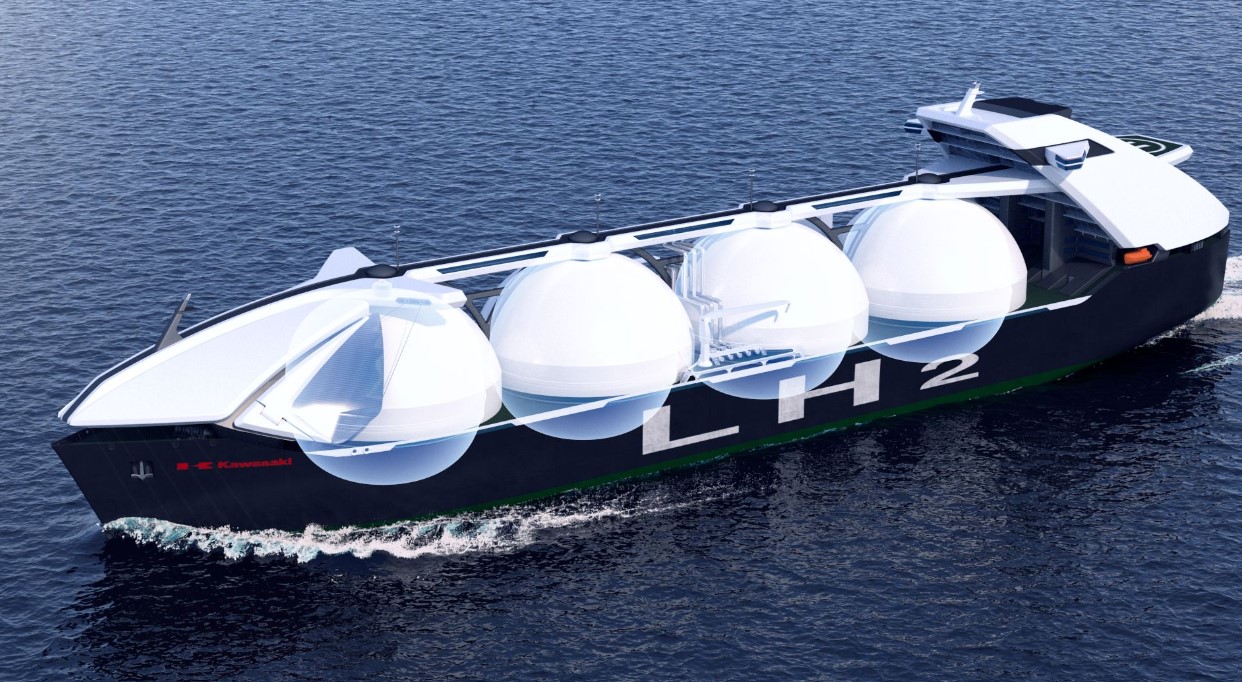Japan’s Kawasaki Heavy Industries said it had completed technological development for a cargo containment system which it will install in large liquefied hydrogen carriers.
KHI carried out this project under the New Energy and Industrial Technology Development Organization (NEDO) subsidy program.
The firm said in a statement it designed and built a test tank to use it to verify the performance of a CCS for large liquefied hydrogen carriers.
In order to enable large-volume marine transportation of hydrogen, it must be cooled to –253°C to be liquefied and reduced to 1/800 of its gaseous-state volume, and reliably maintained in these low-temperature conditions for long periods.
To achieve this, KHI developed a new CCS, CC61H type, for large-scale liquefied hydrogen carriers.
It uses a spherical design to keep the outer surface area small relative to the inner capacity and minimize heat ingress, KHI said.
Also, it features a double-shell structure that provides high-performance, two-step thermal insulation, the firm said.
160,000-cbm carriers
The test tank designed based on CC61H type is similar in size to the planned CCS for use in large liquefied hydrogen carriers.
Each of these will feature four 40,000 cbm tanks for a total cargo capacity of 160,000 cbm, KHI said.
Moreover, KHI adapted the structural dimensions of the test tank components, such as the thickness of structural members and thermal insulation materials, to match actual vessels.
KHI said that the integrity of the new structure was verified, including assembly, welding, and workability of insulation.
During the final step of the development process, Kawasaki carried out gas replacement, cooling, and heat-up tests using the test tank.
It was also confirmed that efficient gas replacement could be carried out for the internal space of large tank using inert gas, and that insulation performance was achieved as planned, the firm said.
Moving forward, Kawasaki said it will continue its work on the large liquefied hydrogen carriers for commercial operations, in line with a liquefied hydrogen supply chain commercialization demonstration project running through 2030.
Through these efforts, KHI will contribute to the promotion of hydrogen energy use and the achievement of “carbon neutrality”, it said.
Last year, KHI received basic design approval from compatriot classification society ClassNK for a for a large liquefied hydrogen carrier.
The AiP for the 160,000-cbm tanker followed the same approval KHI won in April 2021 for the cargo containment system.

